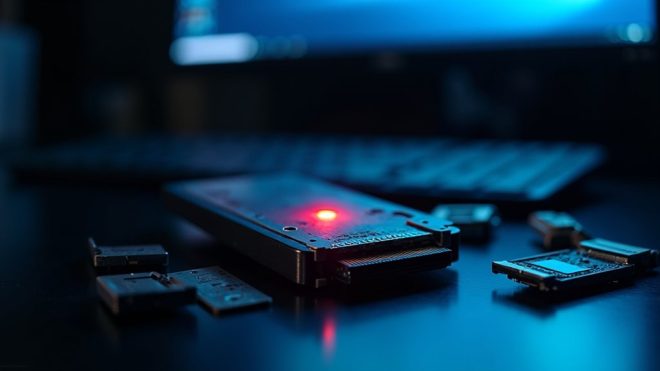Microsoft’s Windows 11 security update KB5063878 is causing widespread SSD failures and data corruption during large file transfers exceeding 50GB on drives over 60% full. The issue affects multiple SSD brands globally, with users reporting drives becoming undetectable and experiencing critical data loss. Although Microsoft acknowledges investigating the problem, they’ve labeled it a rare “race condition.” Power users and professionals face the highest risk until a thorough solution emerges.

A critical Windows 11 security update is causing chaos for some SSD users, with reports of drives mysteriously disappearing or becoming corrupted during intensive write operations. The mandatory update, KB5063878, released on 12 August 2025, has sparked concern among tech enthusiasts and professionals alike, particularly affecting users performing large data transfers exceeding 50GB on drives that are more than 60% full.
The issue appears to be an equal-opportunity offender, striking across multiple SSD brands including Corsair, SanDisk, and Kioxia, regardless of whether they’re equipped with Phison or InnoGrit controllers. Reports from Japanese users have been particularly numerous, with the problem now spreading globally. Users report a chilling sequence of events: File Explorer freezes, I/O errors multiply like digital rabbits, and in worst-case scenarios, drives vanish entirely – even from BIOS detection. Microsoft’s Windows Sandbox disabled is now required for those attempting to uninstall the problematic update.
Microsoft’s response has been characteristically measured, acknowledging the investigation but stopping short of confirming a direct link between KB5063878 and the SSD failures. Meanwhile, controller manufacturer Phison has stepped into the fray, collaborating with Microsoft while suggesting users install heatsinks – a curious recommendation that hints at thermal management playing a role in this digital drama.
One particularly troubling case involved an 8TB Seagate Barracuda drive that transformed into RAW format faster than you can say “blue screen of death.” The victim? A professional’s treasure trove of SQL Server databases and Visual Studio projects, rendered inaccessible despite hibernation settings and update rollbacks showing no hardware faults – a clear indication of software-induced corruption.
The plot thickens when examining the specific conditions triggering these failures. Like a perfect storm, the issues emerge when substantial write operations coincide with drives operating near capacity. The involvement of multiple SSD controllers suggests we’re dealing with a fundamental interaction problem rather than a single manufacturer’s quirk.
Although Microsoft maintains the update is safe for most users, characterising the SSD issue as a rare “race condition,” the pattern of failures paints a more complex picture. The specific conflict appears to stem from an unhappy marriage between power management features and the update’s disk handling mechanisms.
For the average user, KB5063878 likely poses minimal risk. Nevertheless, for professionals and power users pushing their storage systems to the limit, the update represents a potential landmine of data loss. As Microsoft and SSD manufacturers continue their investigation, users might want to think twice before running major file operations on nearly-full drives – at least until this digital mystery is fully unravelled.
Final Thoughts
Microsoft’s KB5063878 update has sparked concerns among users due to alarming SSD failures and data loss. This situation underscores the risks that can accompany routine system updates, as the balance between implementing security fixes and maintaining system stability is crucial. As Microsoft works on a solution, the tech community’s quick response highlights the importance of user feedback in ensuring OS reliability.
If you’re experiencing issues related to this update or need assistance with your system, the Get Computer Repair team is here to help. Don’t hesitate to reach out to us for expert support. Click on our contact us page to get in touch!

